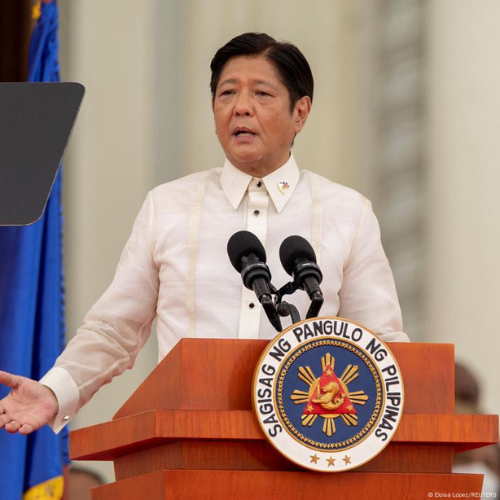In a decisive move to combat crime and restore public confidence, Philippine President Ferdinand Marcos Jr. has announced the immediate ban on Philippine offshore gaming operators (POGOs), which primarily catered to Chinese gamblers. This significant policy shift marks a stark departure from the previous administration’s approach and reflects Marcos’ commitment to addressing the country’s pressing socio-economic and political issues.
A Bold Move Against Crime by Marcos
During his annual address to lawmakers, Philippine President Ferdinand Marcos Jr. declared, “Effective today, all POGOs are banned.” This statement was met with applause from legislators and marks the culmination of increasing pressure to shut down an industry that has been associated with numerous criminal activities, including money laundering, human trafficking, and financial fraud. The president’s decision aims to dismantle these illegal operations and curb the rampant abuses linked to the industry.
Marcos instructed the Philippine Amusement and Gaming Corporation (PAGCOR), the regulatory body overseeing the gaming sector, to wind down and close all POGO facilities by the end of the year. This move is part of a broader effort to eliminate sectors that have ventured into illicit areas, jeopardizing the nation’s legal and economic systems.
Economic Implications and Responses
While some might have expected significant economic repercussions from the ban, Finance Secretary Ralph Recto assured the public that the impact would be minimal. The POGO industry, which had already seen a decline from its peak during President Rodrigo Duterte’s tenure, is estimated to have economic costs amounting to 265.7 billion pesos ($4.5 billion) annually. This figure includes risks to investments and tourism. In contrast, the industry’s benefits, including tax revenues and contributions to real estate and consumption, were pegged at 166.5 billion pesos per year.
Secretary Recto emphasized that the negative impacts of the POGO industry outweighed its benefits, justifying the government’s decision. The administration is also taking proactive steps to support those affected by the ban. Economic managers have been tasked with finding new employment opportunities for displaced workers, ensuring a smooth transition and minimizing the economic fallout.
A Shift in Foreign Policy and Internal Politics
The POGO sector thrived under the administration of President Rodrigo Duterte, Marcos’ predecessor and former ally, who had fostered closer ties with China. This led to a significant influx of Chinese nationals, boosting property prices and local consumption. However, the criminal activities associated with the industry have overshadowed these economic gains, prompting the current administration to take a tougher stance.
In his address, Philippine President Ferdinand Marcos Jr. also touched on the Philippines’ foreign policy, particularly in relation to territorial disputes in the South China Sea. He asserted the nation’s sovereignty while expressing openness to diplomatic efforts aimed at de-escalating tensions. “The Philippines cannot yield. The Philippines cannot waver,” it was stated, with his commitment to protecting national interests and not compromising principles being highlighted.
Political Dynamics and Future Prospects
Marcos’ bold stance on POGOs and his broader policy initiatives come at a critical time, with the 2025 midterm elections approaching. His firm approach is likely to resonate with Filipino voters, portraying him as a decisive leader committed to upholding the rule of law and protecting the nation’s sovereignty. Alvin Camba, a research advisor at Washington-based Associated Universities Inc., noted that Philippine President Ferdinand Marcos Jr.’s principled stance against POGOs demonstrates his dedication to combating transnational criminal elements, a move that is expected to garner significant public support.
The president’s address also highlighted his administration’s achievements and future plans. He pledged to tackle rising living costs and expand infrastructure projects, including power, airport, and rail developments. Furthermore, Marcos proposed a 6.35 trillion pesos budget for 2025 and urged lawmakers to pass legislation enhancing investment incentives and reducing energy costs.
Addressing Public Concerns
Despite the economic resilience and cooling inflation within the central bank’s target range, Philippine President Ferdinand Marcos Jr. acknowledged the ongoing struggles of many Filipinos with high living costs, particularly the price of essential commodities like rice. “We feel you. We are not taking your concerns for granted,” he assured, pledging measures to alleviate these burdens and ensure the benefits of economic growth reach all citizens.
Philippine President Ferdinand Marcos Jr.’s decision to ban POGOs marks a significant step in his administration’s efforts to address crime, uphold sovereignty, and respond to public concerns. As the nation moves towards the 2025 elections, these actions reflect a strategic and principled leadership style aimed at securing a better future for the Philippines.


